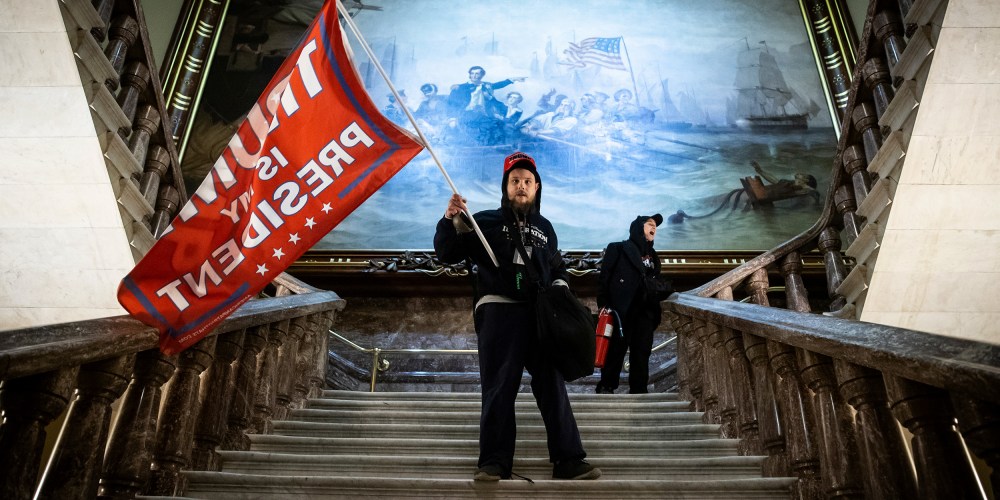In the biggest study of its kind, the fine minds at the Shorenstein Center on Media, Politics and Public Policy at Harvard University pored over close to 500 documents filed to the U.S. District Court for the District of Columbia in search of what motivated 417 Capitol rioters who have been charged in relation to the Jan. 6 insurrection. After careful examination of vast amounts of evidence, including social media posts and private messages, they’ve come to a shocking conclusion: Donald Trump’s lies are the most important motivator for why the rioters showed up that day.
All jokes aside: the study might confirm what we already know, but it actually is important. In a politically polarized world in which it’s easy for partisans to dismiss every major event as reducible to tribal narrative, rigorous empirical studies carried out by scholarly institutions are essential for the public record — and for forcefully refuting conspiracy theories.

The report’s findings were shared with NBC News ahead of its release. According to NBC News’ breakdown of the report, “A plurality of rioters cited either their support for Trump (20.6%) or Trump’s false belief that the election had been stolen (also 20.6%) as their primary motivation for their actions that led to charges on Jan. 6.” The third most frequently cited reason from defendants was a belief that they were taking part in “revolution, civil war, or secession.”
Other less commonly listed reasons included to “peacefully protest” (7%) and “general interest in violence” (6.2%).
The topline takeaway from this data is that a plurality of defendants who breached the Capitol said they were there because of Trump’s disinformation agenda which falsely claimed that the election had been stolen. The findings are obvious to any political observer who doesn’t live under a rock and doesn’t traffic in conspiracy theories, but it helps cement Trump’s culpability. It’s a bit like the House Jan. 6 committee’s public hearings — no liberal political junkie watching them is going to encounter much that is startlingly new, but every carefully examined piece of information helps set the record straight on what happened and exactly how it happened.












